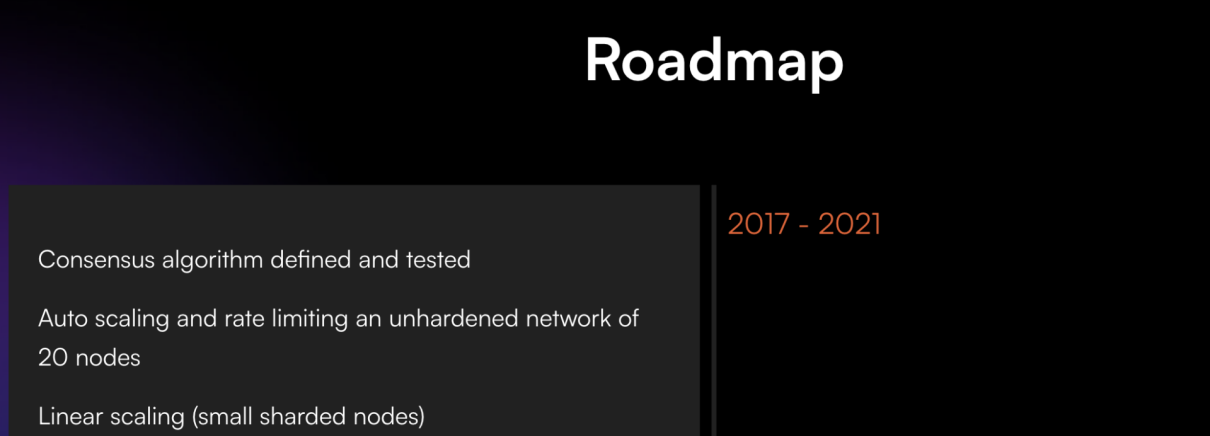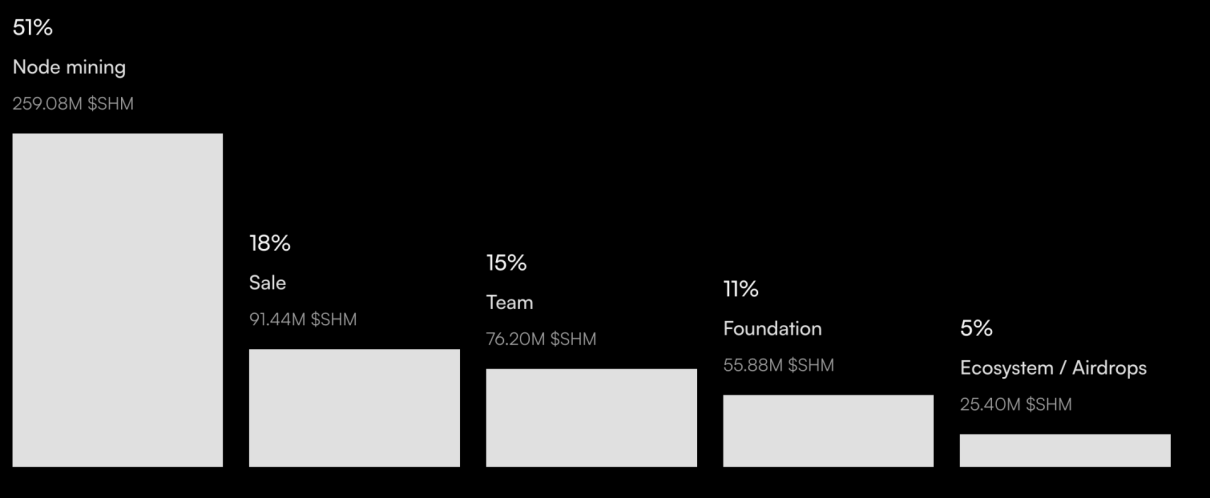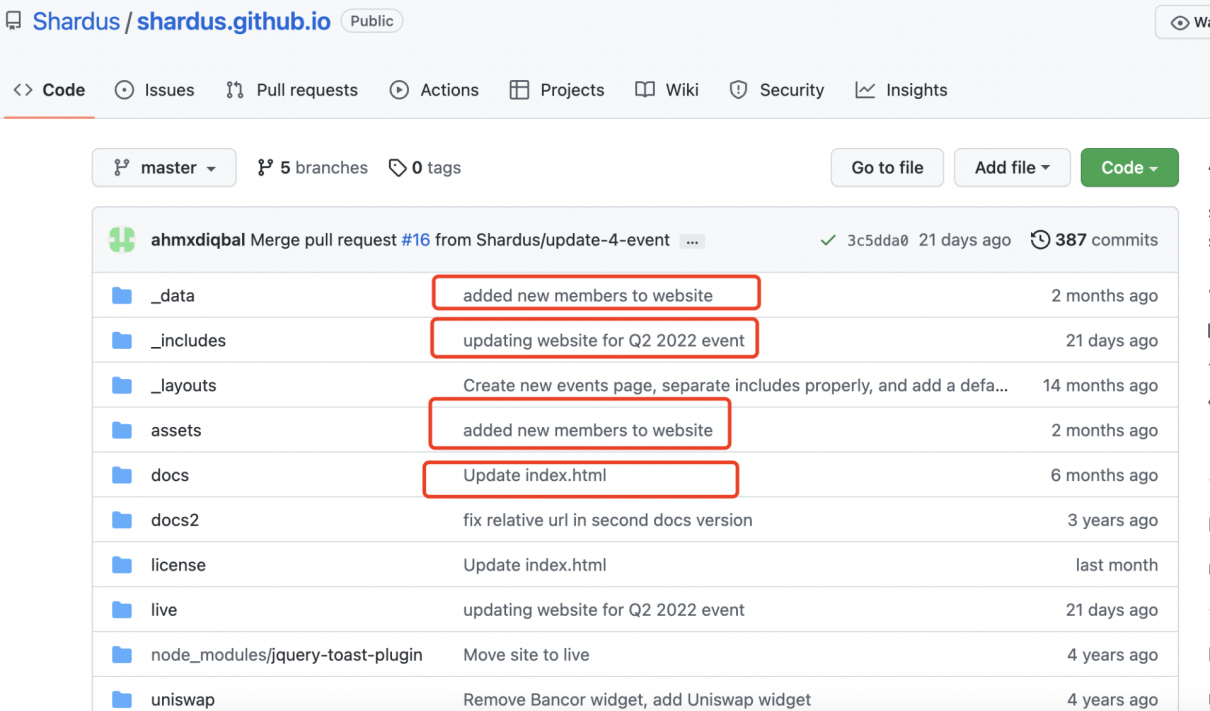Deep Dive into the $200 Million Valuation of the New Public Chain Shardeum: WazirX Co-founder "New Wine in Old Bottles"
Author: Misty Sea, PANews
Just when everyone thought the competitive landscape of public chains was set, the successive launch of new MOVE-based public chains reignited the market's anticipation for new public chains.
According to a previous report by TechCrunch, the new public chain Shardeum, originating from India, has entered the later stages of its first round of financing negotiations, hoping to raise $20 million to $30 million at a valuation of $200 million. Participating institutions in the financing include Spartan Group, Struck Crypto, Big Brain Holdings, and Cogitent Ventures. Although Shardeum's valuation of $200 million seems quite "affordable" compared to the exorbitant valuations of Aptos and Sui, which often exceed $2 billion, PANews has found that it appears to be facing quite a few "troubles."
WazirX Co-founder "Flees" India for Second Startup
Shardeum is an EVM-based, linearly scalable smart contract platform that aims to provide permanently low gas fees while maintaining true decentralization and reliable security. The Shardeum platform is deployed using Solidity and Vyper languages. According to official information, it is currently in the testnet phase, with the mainnet expected to launch in the fourth quarter of this year, after which its tokens will be publicly listed. Its founder is Nischal Shetty, co-founder of the Indian cryptocurrency exchange WazirX.
Earlier, on August 3, Beincrypto cited a written response from Pankaj Chaudhary, the Minister of State for Finance in the Indian Upper House, stating that the Indian Enforcement Directorate is investigating the cryptocurrency exchange WazirX and accusing it of involvement in two money laundering cases and violations of foreign exchange rules, with a total money laundering amount of approximately 27.9 billion rupees (over $350 million).
WazirX executives have also been asked to undergo questioning, but it is reported that co-founder Nishal Shetty moved to Dubai with his family as early as April. The exposure of regulatory issues has also triggered a dispute over equity between WazirX and Binance, with Zhao Changpeng claiming that Binance's acquisition of WazirX, announced in 2019, has not actually been completed until this year. Both parties hold differing views, and the matter is currently being handled by lawyers.
While deeply mired in regulatory crises, Shardeum has already secured substantial financing for a second startup in a foreign land, adding a dramatic twist to its emergence.
Shardeum claims to be the world's first Layer 1 solution to the scalability trilemma, aiming to bring billions of future users and numerous dApps into Web 3.0. Whether Shardeum's bold claims are backed by real strength or merely a gimmick for financing and operations remains to be seen, and PANews continues to dig deeper.
Nischal Shetty's LinkedIn information shows that Shardeum was established as early as February this year, with Nischal announcing and gathering contributors on Twitter on February 3.

However, according to the official roadmap, Shardeum began development as early as 2017, making it five years in development to date. As of today, after five years of development, it is still in the testnet phase, and the technical details in the official documentation have yet to be completed. The timing of large-scale fundraising seems illogical both in terms of sequence and development cycle.

A close reading of its white paper reveals that Shardeum's protocol layer is based on the technology of Shardus, a project that began development in 2018. The co-founder of this project, Omar Syed, is the original founder of Shardus, who claims to have served as a distributed systems architect for NASA, Yahoo, Raytheon, and Zynga for thirty years, entering the Bitcoin community in 2011.
What is Shardus? What is its relationship with Shardeum? This will be elaborated on later.
Consensus Mechanism: PoQ and PoS
According to Shardeum's official documentation and white paper, its consensus mechanism is a combination of Proof of Quorum (PoQ) and Proof of Stake (PoS). PoQ refers to generating a receipt that shows the majority of the consensus group supports the transaction. Each node in the consensus group signs the transaction hash and passes it to other nodes in the group. Nodes collect these votes, and when the vote count exceeds 50%, these votes constitute a receipt that proves consensus has been reached on the transaction.
In this case, validating nodes stake a minimum number of tokens to ensure that nodes operate according to the network protocol. Currently, most platforms group transactions and apply consensus within a single block, while Shardeum achieves consensus for each transaction separately, which not only reduces the time taken to process transactions but also ensures that shards do not interfere with each other.
The network has grown linearly from 30 nodes in the Alpha phase to a minimum of 1280 nodes in the Beta phase, with 128 nodes per shard and 200 TPS. It is divided into Validator Nodes, Archive Nodes, and Standby Nodes, with a target of 200 TPS.
Validator nodes verify transactions in the network by participating in consensus and must stake SHM to participate. Network rewards come from the SHM economic model budget and network transaction fees. Archive nodes maintain the entire transaction history and store historical data, and may or may not need to stake SHM, but can receive some network incentives. Standby nodes are currently inactive nodes in the network that are not participating in consensus. Standby nodes help to scale the Shardeum network more quickly during peak traffic.
According to official information, the network node incentive program is currently being planned in collaboration with the community and will be finalized and announced in the coming months.
The hype around EVM chains is all about low gas fees and fast speeds, but the underlying technologies and mechanisms often leave people "impressed but confused." To date, innovative projects still stem from Ethereum, which has been forked by numerous EVM chains. The notion that a faster horse will make the carriage disappear is relevant here; whether Shardeum's PoQ and PoS mechanism can meet market demands remains to be seen.
Economic Model
Shardeum has a maximum supply of 508 million SHM, with 51% allocated for node mining; 18% for presale, to be released linearly over two years three months after the mainnet launch; 15% for the team, also to be released linearly over two years three months after the mainnet launch; 11% for the foundation, released directly after the mainnet launch and used according to operational needs; and 5% for the ecosystem and airdrops, released directly after the mainnet launch.

The presale allocation is 18%. As mentioned earlier, sources indicate that Shardeum hopes to raise $20 million to $30 million at a valuation of $200 million. If this information is accurate, it can be calculated that this financing represents the full sale of 18%, with no plans for subsequent rounds of fundraising. Meanwhile, the actual token incentive for the Shardeum team is at least 26%.
Whether in terms of financing presales or team allocations, the token lock-up and unlocking periods are relatively short compared to other public chains, and the foundation has no lock-up, releasing tokens directly in a linear fashion. Such a model from the outset divides users, investors, teams, and investment institutions into opposing parties rather than a community of shared interests.
If Shardeum's mainnet is not widely adopted after launch, the continuous supply of 51% for mining will not be absorbed by demand, and the SHM token will only continue to be distributed, creating significant selling pressure.
What is the Underlying Technology Shardus?
As mentioned earlier, the Shardeum white paper states that its protocol layer is developed based on Shardus. A review of Shardus's official Twitter reveals that it ceased operations in May 2021 and began retweeting Shardeum's official tweets in February of this year.
Shardus's main selling point is building distributed ledger software to solve traditional blockchain issues—scalability, decentralization, and efficiency. It aims to use computation and state sharding to accommodate billions of daily active users, thereby achieving a globally scaled decentralized network.
According to information disclosed on the official GitHub, once the Liberdus network (the first application built using Shardus software) is developed and deployed, the Shardus team will be disbanded, and all remaining unallocated ULT (Shardus tokens) will no longer be distributed and will be directly destroyed. However, according to the code submission information on Liberdus's official GitLab, this project has not been developed for two years. This may indicate that Shardus stalled before the last bull market and did not launch a single dApp.
A review of Shardus's official GitHub documentation shows that in the past six months, it has only modified and added team member information and added a 2022 roadmap, with no technical updates.

A review of Shardus's official Twitter shows that it ceased operations in May 2021 and began retweeting partner Shardeum's official tweets in February of this year.
All signs indicate that Shardeum seems to be a project that has been repackaged after Shardus encountered developmental bottlenecks and stagnated for a period. According to data from CoinMarketCap, Shardus currently has a market value of $5 million, while Shardeum has directly raised its valuation to $200 million. Whether it has the capability to create such a highly valued project remains a big question mark.










